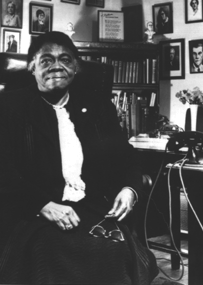| Professional
Conversations On-line 
Because the Internet is a multimedia
forum -- we can link pages together in a non-linear
fashion, included pictures and video with text, have two-way
public and private conversations, and download
information to our personal computers -- it is the
perfect forum for extending professional conversations
across the globe. Educators throughout this country have
been using the Internet is a variety of ways to share
work, ask questions and collaborate. This week's websites
extend on a past collection called "Documenting work of
teachers and learners on the WWW"
by focusing on the publishing and communication forums
that are being set up to support professional
conversations among teachers.
One potentially very exciting project (which
includes a Philadelphia teacher!), I ran across is the MiddleWeb Diary Project. The descriptor reads,
"On September 7, MiddleWeb
will begin publication of two weekly diaries penned
by middle grades teachers. Our pair of (brave)
diarists have agreed to chronicle their own efforts
and the efforts of their respective schools to help
more kids succeed.
Deborah Bambino, an eighth grade
science teacher/leader in Philadelphia; and Susan
Smethurst, a middle grades resource teacher in
Toronto, both work in inner-city schools with diverse
populations. Bambino's school is heavily involved in
several reform initiatives, including the Johns
Hopkins' Talent Development Model, and Bambino leads
a "critical friends group" that regularly
discusses teaching issues. Smethurst's school
struggles with very limited resources and a teaching
staff that is just beginning to explore the
possibilities of change, but she sees some hope in
efforts to build more local empowerment among
parents, teachers and the community."
MiddleWeb is an
overall great site which includes both Principal and Teacher Professional Development. They publish
conversations on-line frequently like this one --> Principal Talk:
Louisville's Middle School Principals discuss the pros
and cons of using discussions of student work to help
drive improvements in teaching and learning.
The National Writing Project is a teacher-centered project with teachers,
from the primary grades through the university, working
together as colleagues in a collaborative university-school
program to improve the teaching of writing and learning.
Every summer teachers around the country gather at their
local writing project sites to learn from one another.
The NWP is experimenting with how to promote professional
conversations on-line in a cross site forum, and this
summer created it's second annual E-Anthology.
The E-Anthology is a publishing forum for writing project
teacher consultants (TCs). TCs send in writing that was
developed during the summer institute. Each site is
invited to sign up and tell a little about how they are
using technology to support the work of their Institute.
And then individual emails and a public guestbook are
included in order to allow readers to comment to the
writing published. In this way the E-Anthology is lens into the Summer Institute experience, a
forum for individuals to share their thoughts and
experiences, and a medium through which Writing Project
sites can start to experiment with new technologies.
The NWP's E-Anthology is actually connected to a larger site called
the "Virtual Institute" through which email listserves, web-based
publishing, on-line live and asynchronous conferencing,
are currently being developed to further extend national
conversations among TCs. One such upcoming event is
called "NWP Books and Authors".
There are also several sites being
created to support teacher research. These sites invite
teachers to talk and submit writing. These include:
Networks: An on-line forum for
teacher-research. The
editors write "With the help of readers and
writers like you, this journal will soon provide a
forum for teachers' voices, a place where teachers
working in classrooms, from pre-school to university,
can share their experiences and learn from each other.
We have created this "sample" web site as
an introduction to what we hope will become a
valuable contribution to educational research.
The Teacher Inquirer is a web forum that invites teacher
researchers to read and submit writing for
publication.
Some other sites that promote teacher
publishing and collaboration include:
Well Connected Educator is a general online publishing center and
forum for the K-12 community to read, write, and talk
about educational technology.
NCIP (National Center to Improve Practice in
Special Education Through Technology, Media and
Materials) actually has a two-way conversation forum
set up via NCIPnet. They also highlight past workshops -- such
as The Art and Writing
Connection, Feb-Mar 1997 --
with full agendas, activities, and discussions.
Everything they publish is linked to a conversation
space for questions and comments.
ArtsEdNet Talk is a site for those interested in arts
education to participate in organized listserves and
read archives of past discussions. They often bring
in guest artists and teachers to talk about their
work and experience with listserve participants.
Impact II--The Teachers Network has a
Let's Talk site that invites you to discuss, share,
and imagine the state of education. Our Let's Talk
area is our easy to use bulletin board for your ideas
and input. They are promising that in February there
will be a real-time discussion area available.
Teachers Helping
Teachers is a larger
general site that collects lesson plans from
teachers, has live organized "chats" and a
guestbook for general comments and questions.
Additionally, there are a ton of Educational Listserves
(More Education Listserves
listed here!) where you can
participate in a email-based discussion with educators
all over the world on a top of particular interest to you. Newsgroups too are another way to touch base with
educators. Newsgroups are like electronic bulletin boards
-- you post questions/comments and people respond.
Several Professional Associations
support their own email lists. For example, the National Council of Teachers of English
(NCTE) has many open conversation lists that
you can subscribe yourself to. Instructions are included
on the Conversation: Lists page. To search the homepages of other
professional organizations, check out Kathy Schrocks's list.
If you are part of an professional
community/communication forum on-line I would be
interested in hearing about it. Please email me at ccantrill@philaedfund.org. Enjoy!
|